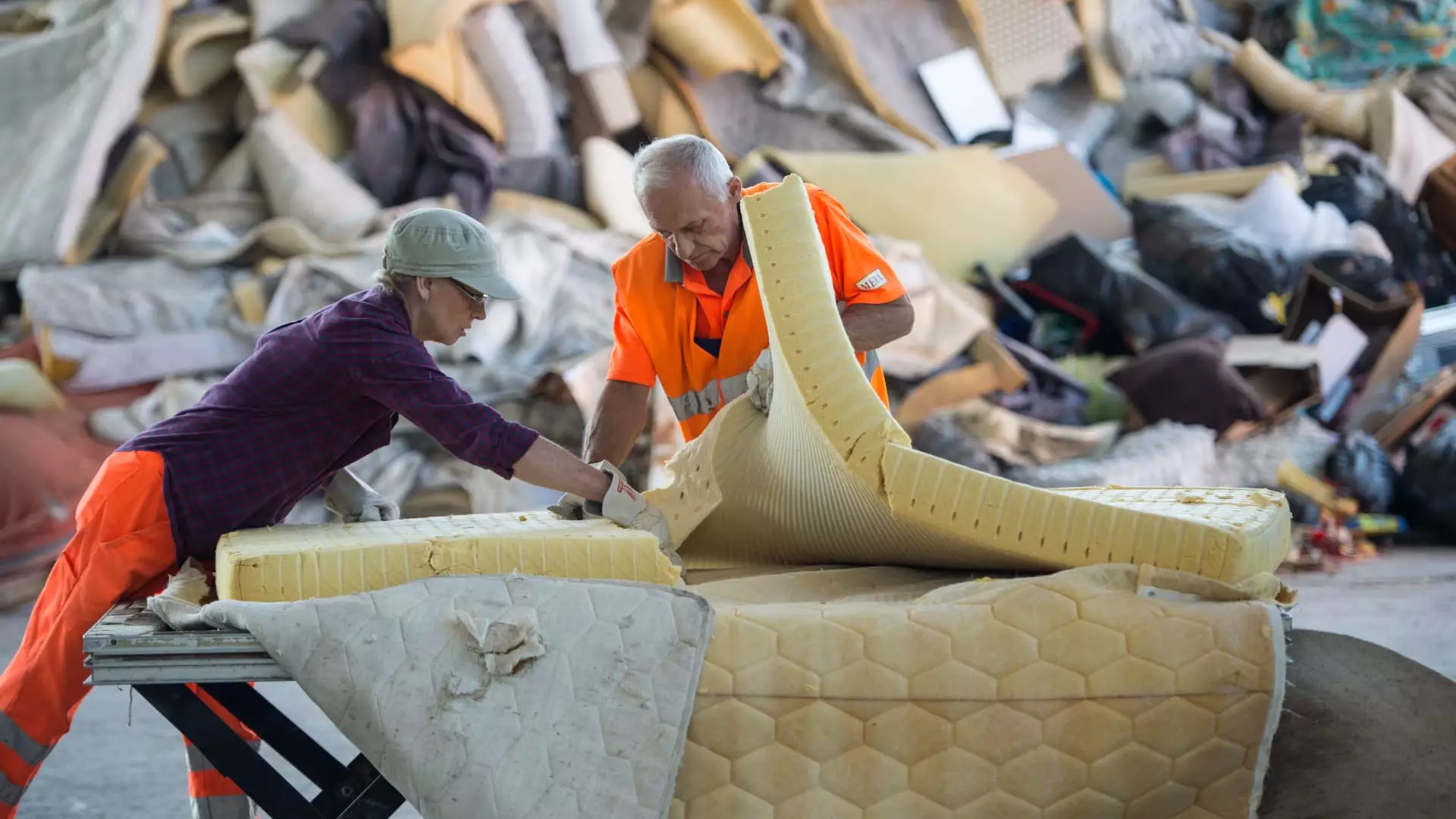In an era defined by mounting environmental concerns, certain states in the U.S. are taking notable strides toward greening their mattress industry. By instituting recycling fees on mattress purchases, these states are creating a foundation for an eco-friendlier market. The implementation of such fees not only aims to reduce landfill waste from discarded mattresses but also to promote the essential tenets of a circular economy, wherein products and materials are reused effectively.
Four pioneering states—California, Connecticut, Oregon, and Rhode Island—have adopted a flat fee structure on mattresses and box springs sold both online and in retail outlets. Ranging from $16 to about $23, these fees contribute significantly to state-sponsored recycling programs intended to minimize the environmental impact of mattress disposal. Each year, Americans throw away between 15 to 20 million mattresses, with an average disposal rate of approximately 50,000 mattresses per day. Alarmingly, more than 75% of a mattress’s components, including steel, wood, and foam, are recyclable, as highlighted by the Mattress Recycling Council (MRC). It is evident that without effective recycling initiatives, these materials are left to decompose in landfills, contributing to environmental degradation.
The state of Oregon implemented a hefty $22.50 stewardship assessment effective January 1, 2025, to encourage mattress recycling. As part of similar initiatives, California and Connecticut have raised their fees to $16. The financial model aims to ensure that the burden of disposing of old mattresses does not fall solely on the consumer but instead creates a revenue stream to fund recycling programs. Rhode Island has likewise introduced its own fee of $20.50, reflective of a growing trend in environmentally responsible waste management.
Despite progress, the landscape for mattress recycling remains stark. A mere 58 companies across the nation currently engage in mattress recycling, making it difficult for consumers in states without recycling legislation to seek responsible disposal options. In several areas, individuals pay exorbitant fees—sometimes upwards of $95 for pickup services—to rid themselves of old mattresses. The challenge not only lies in consumer awareness but also in practical accessibility to recycling services. As Oregon’s ambitious goal demonstrates, the establishment of convenient drop-off locations can help alleviate these challenges and provide residents with viable options for recycling their unwanted mattresses.
Governments in states like Massachusetts and New York are working with organizations to foster similar programs. Amid an atmosphere of growing environmental urgency, expanded recycling options could lead to a marked decrease in illegal dumping, further benefitting the environment. State-level recycling programs tap into the principle of Extended Producer Responsibility (EPR), wherein manufacturers are encouraged to take accountability for the entire lifecycle of their products—from production through disposal.
Extended Producer Responsibility represents a paradigm shift in waste management. Under EPR, the financial and logistical responsibilities typically borne by municipal systems for waste management are redirected to the producers themselves. As Reid Lifset, a Yale University industrial ecology fellow, articulates: “With EPR, producers of products or packages become responsible for managing them when they become waste.” This initiative not only alleviates municipal burdens but also incentivizes companies to design products with recyclable materials, thereby aligning corporate practices with sustainability objectives.
In Oregon’s case, approximately half of the $22.50 fee collected will directly fund operational aspects of the recycling program in 2025. This strategic allocation ensures that these efforts remain sustainable while also promoting awareness and public education surrounding recycling initiatives. The MRC currently reports the existence of over 300 mattress collection sites in states offering these programs, allowing individuals to dispose of their old mattresses at no cost.
The mattress recycling fees being instituted by these forward-thinking states serve as a compelling model for broader environmental initiatives across various consumer products. As more states consider implementing similar programs, the mattress recycling movement could catalyze sweeping changes in how we manage waste in general. By investing in recycling infrastructure and promoting public awareness, these initiatives embody a crucial step toward environmental sustainability.
Ultimately, the success of such programs will depend on ongoing collaboration between state governments, manufacturers, and consumers. Only through collective effort can we hope to cultivate a more environmentally responsible future where recyclable materials are reused rather than abandoned in landfills.


Leave a Reply